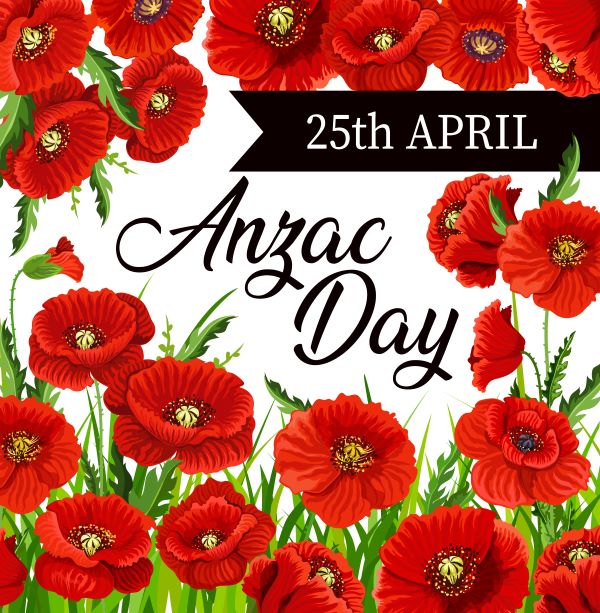As the dawn breaks on Anzac Day 2024, our hearts are filled with reverence and gratitude for the brave souls who sacrificed their lives for the freedoms we cherish today.
This annual commemoration holds profound significance, not only as a tribute to the courage and sacrifice of the Australian and New Zealand Army Corps (ANZAC) but also as a reminder of the enduring spirit of unity and resilience that defines our nations.
As we reflect back on our history, remembering the valour of our heroes, let us also consider meaningful ways to honour their legacy and uphold the values they fought to defend.
Read on to learn about the history behind Anzac Day, as well as five heartfelt ways to honour the remarkable men and women who have served our nations with unwavering dedication.
What is Anzac Day?
Anzac Day is a national day of remembrance in Australia and New Zealand, commemorating the sacrifices of the Australian and New Zealand Army Corps (ANZAC) soldiers who fought in World War I—Particularly those who landed at Gallipoli, Turkey, on 25th April, 1915, during the Gallipoli Campaign.
The day also honours all Australians and New Zealanders who have served and died in all wars, conflicts, and peacekeeping operations.
When is Anzac Day?
Anzac Day is observed annually on 25 April.
This year, in 2024, Anzac Day takes place on a Thursday.
What is the History Behind Anzac Day?
The history of Anzac Day dates back to World War I and specifically to the Gallipoli Campaign.
On the 25th of April 1915, the Australian and New Zealand Army Corps (ANZAC) landed on the Gallipoli Peninsula in Turkey as part of a broader Allied campaign against the Ottoman Empire.
The campaign was intended to open up a new front against the Central Powers and secure a supply route to Russia.
However, the operation quickly turned into a protracted and brutal stalemate characterised by trench warfare, disease, and high casualties on both sides.
Despite the strategic failure of the Gallipoli Campaign, the courage, resilience, and comradery displayed by the ANZAC soldiers during their time on the peninsula left a lasting impression.
The spirit of the ANZACs became emblematic of the qualities that Australians and New Zealanders admired in their soldiers – courage, endurance, and loyalty to their companions.
The following year, in commemoration of the landing of Gallipoli, the first anniversary was observed on the 25th of April 1916. Acting Australian Prime Minister George Pearce officially named this occasion “Anzac Day.”
Initially, it served as a day of solemn remembrance solely for those who had served and died in the campaign.
However, over time, Anzac Day evolved to encompass the remembrance of all Australians and New Zealanders who have served and died in wars, conflicts, and peacekeeping operations.
Today, this day holds significant cultural and historical importance in both Australia and New Zealand, serving as a time for reflection, gratitude, and national unity and an opportunity to honour the sacrifices of servicemen and women.
What is the Significance of Red Poppies on Anzac Day?
Historically, the red poppy has become a prevalent symbol of remembrance representing Anzac Day.
Its significance stems from the famous poem "In Flanders Fields,” written by Lieutenant Colonel John McCrae during World War I, which describes how poppies grew over the graves of fallen soldiers in Flanders, Belgium.
The poppy serves as a poignant reminder of the sacrifices made by servicemen and women during times of war.
Wearing or displaying a red poppy on Anzac Day is a way to honour the memory of the soldiers who fought and died for their countries, symbolising gratitude for their bravery and sacrifice, as well as a commitment to never forget their contributions.
Beyond the significance of what they represent, the funds raised from the sale of poppies also often go towards supporting veterans and their families, making it a meaningful gesture of support for those who have served.
Significant Ways You Can Honour Our Valiant, Anzac Soldiers This Year
1. Attend Dawn Service
Dawn services are a significant tradition on Anzac Day, symbolising the time of the original Gallipoli landing.
Many communities hold dawn services at war memorials, monuments, or other significant sites, allowing you to pay your respects in a solemn and respectful atmosphere.
2. Participate in Marches
Many cities and towns may organise Anzac Day marches, where veterans, current service personnel, and community groups parade through the streets.
You can participate in honouring those who served both by marching in one yourself or simply by showing support from the sidelines.
3. Visit War Memorials and Museums
Another meaningful way to pay your respects to those who have served is to visit war memorials, museums, or historical sites related to military history.
This could involve exploring exhibits, reading about the experiences of soldiers, or simply reflecting on the sacrifices made by servicemen and women.
4. Lay Wreaths or Poppy Displays
One of the most traditional ways to acknowledge Anazc Day is to participate in wreath-laying ceremonies at local memorials or monuments.
Alternatively, you can also create your own displays or contribute to others'.
These symbolic gestures are a way to honour the fallen and show your appreciation for their service and sacrifice.
5. Educate Yourself and Others
This day serves as the perfect opportunity to learn more about the history and significance of Anzac Day, whether that means reading books or articles, watching documentaries, or attending talks and lectures.
Finally, one of the most important ways to preserve the memory and meaning behind this important date is to share what you've learned with others, particularly younger generations, ensuring that the legacy of Anzac Day is passed on and never forgotten.


